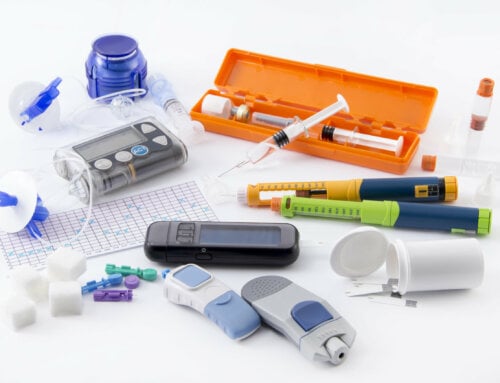The risk of developing diabetes- type 2 typically increases with aging. Certain factors are involved including family history, unhealthy lifestyle habits-weight, lack of exercise and significant stress.
Discover these risk factors and how they can increase the chance of developing diabetes as you get older.
-
- When you have diabetes your body might not make enough insulin or may not use it in the right way. This can cause too much glucose to build up in your blood. Diabetes can lead to other health issues including heart disease or stroke. Diabetes can happen at any age. People with type 1 diabetes make little or no insulin. This type of diabetes tends to develop mostly in children or young adults but can affect any age group. People with diabetes-type 2 generally make plenty of insulin but cannot use it in the right way. The risk of developing diabetes-type 2 is higher if you are inactive, overweight or have a family history of diabetes.
- Symptoms of type 2 diabetes include hunger, thirst, fatigue, frequent urination, blurred vision and dry skin. A person may also heal slowly from bruises and cuts and get frequent skin infections. If you have one or more of these symptoms see your doctor right away. Several blood tests can be done to help diagnose diabetes including a random glucose test, fasting glucose test, oral glucose tolerance test and A1C blood test. If you have type 2 diabetes it can be managed through lifestyle changes and/or medications.
- As you get older you may become less active and start to develop unhealthy habits. Try to stick to healthy and tasty food choices that are low in sugar and fat. Your doctor or a licensed dietician can help you create a healthy meal plan. Talk to your physician about adopting an exercise routine. The ultimate goal is to exercise for 30 minutes a day, 5 days a week. Learn how to test your blood glucose levels at home and report fluctuations to your doctor as needed. Keep a journal of your eating and treatment progress to see how well your diabetes care plan is working.
- Ward off diabetes complications and detect problems early by visiting a team of essential doctors. Have an annual eye exam and get your kidneys checked each year by taking a blood and urine test. Get a flu shot every year. People over 65 should also get the pneumonia vaccine. Have a blood test done each year to check your cholesterol and triglyceride levels. Schedule an appointment with a dentist twice a year for an exam and cleaning. Schedule an A1C blood test at least twice a year to show your average glucose level for the past 3 months.
- As people age their skin may become dry and sensitive. People with diabetes are more prone to getting skin infections. Protect your skin by keeping it clean and moisturized. Use a sunscreen with SPF 15+ when you go outdoors. Wear a hat and sunglasses to keep the sun off your face and out of your eyes.
- Take good care of your feet. People with diabetes can get neuropathy, which is numbness or tingling in the toes and feet. Check your feet daily for sores, blisters, breaks in the skin, calluses or infections. Wear seamless diabetic socks and diabetic shoes that fit properly to avoid foot problems. Keep your feet dry and clean. Avoid walking barefoot. Have slippers to wear at home and water shoes to wear to the beach or pool. Take your shoes off during medical exams to have your feet checked. Visit a podiatrist at least once a year.
- Have your blood pressure checked during routine medical exams. Use a blood pressure monitor at home to keep track of your numbers. Report any high numbers to your physician immediately.
- Reduce the stress in your daily life to help ward off additional medical complications. Take a walk, talk to a friend or focus on a hobby. If stress remains overwhelming talk to your doctor about seeing a counselor or therapist to help you with stress management. Join a support group.
The cost of health care should never prevent you from getting necessary treatment. Medicare can help pay for diabetes tests, special shoes, supplies, eye tests, foot exams and even meal planning. Check your Medicare plan to learn more. Medicare may even help you learn how to take care of your diabetes. Look into attending an accredited diabetes self management program.
As you get older the risk of developing certain health conditions such as diabetes may increase. Healthy lifestyle habits and regular medical exams can help reduce health problems. With a bit of extra care and treatment you can enjoy your golden years with fewer complications.







Leave A Comment